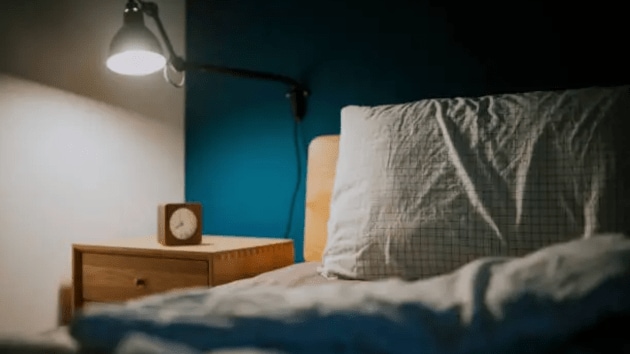Why sleeping with lights on could be harming your heart
Here's all you need to know about why sleeping with lights on could actually be harming your heart.
November 11, 2025 14:02 IST 1 / 7
1 / 7Studies show that exposure to ambient light during sleep can disrupt your body’s natural rhythms, elevate your heart rate, impair metabolism, and increase long-term cardiovascular risk. Below are six important things you should know. (Source: Photo by unsplash)
 2 / 7
2 / 7Disruption of Circadian Rhythm: According to a study by Harvard Health, when you sleep with the lights on, even dimly, your body’s internal clock, the circadian rhythm gets confused. Light exposure at night suppresses melatonin and signals your brain that it’s still daytime, which disturbs the normal cycle of rest and repair. (Source: Photo by unsplash)
 3 / 7
3 / 7Impaired Glucose and Metabolic Regulation: Sleeping under artificial light may harm more than sleep. Participants exposed to light at night showed signs of insulin resistance the following day, a known risk factor for diabetes and heart disease. (Source: Photo by unsplash)
 4 / 7
4 / 7What You Can Do to Protect Your Heart: To reduce risk, aim for a bedroom as dark as possible when sleeping. Turn off lamps, TV, and devices, close blinds or curtains, consider blackout curtains or an eye mask, and try to avoid screens within an hour of bed. These simple steps can support better sleep, healthier metabolism, and improved heart health. (Source: Photo by unsplash)
 5 / 7
5 / 7Increased Risk of Cardiovascular Disease: Large-scale observational data indicate that people exposed to more ambient light at night had greater incidence of heart problems including coronary artery disease, heart attacks, heart failure, and atrial fibrillation,, compared to those sleeping in darker environments. (Source: Photo by unsplash)
 6 / 7
6 / 7Elevated Heart Rate and Autonomic Activation: A study from Northwestern Medicine found that even a single night of moderate light exposure during sleep caused increased heart rate and heightened sympathetic nervous system activity the next morning, responses that over time can strain the heart. (Source: Photo by unsplash)
 7 / 7
7 / 7What You Can Do To Protect Your Heart: To reduce risk, aim for a bedroom as dark as possible when sleeping. Turn off lamps, TV, and devices, close blinds or curtains, consider blackout curtains or an eye mask, and try to avoid screens within an hour of bed. These simple steps can support better sleep, healthier metabolism, and improved heart health. (Source: Photo by unsplash)











